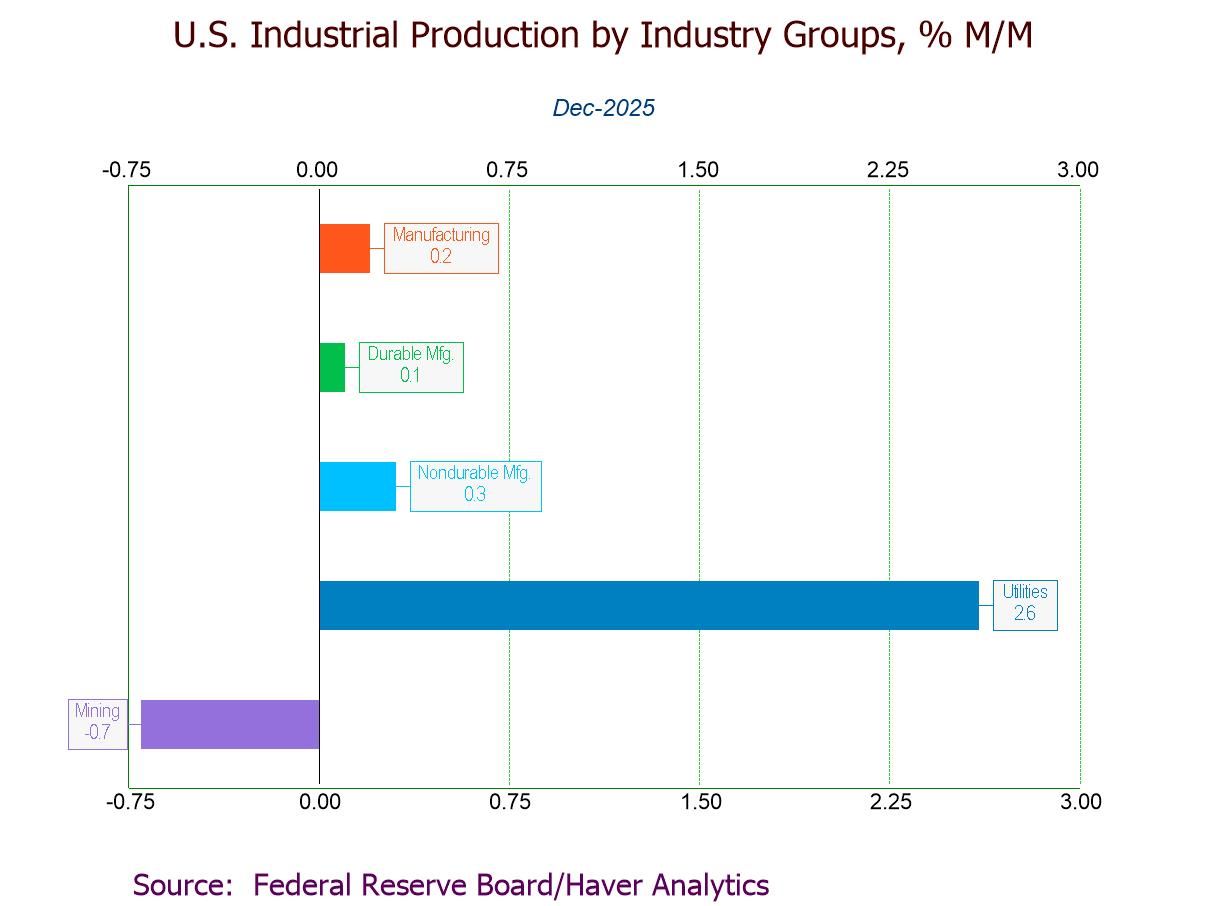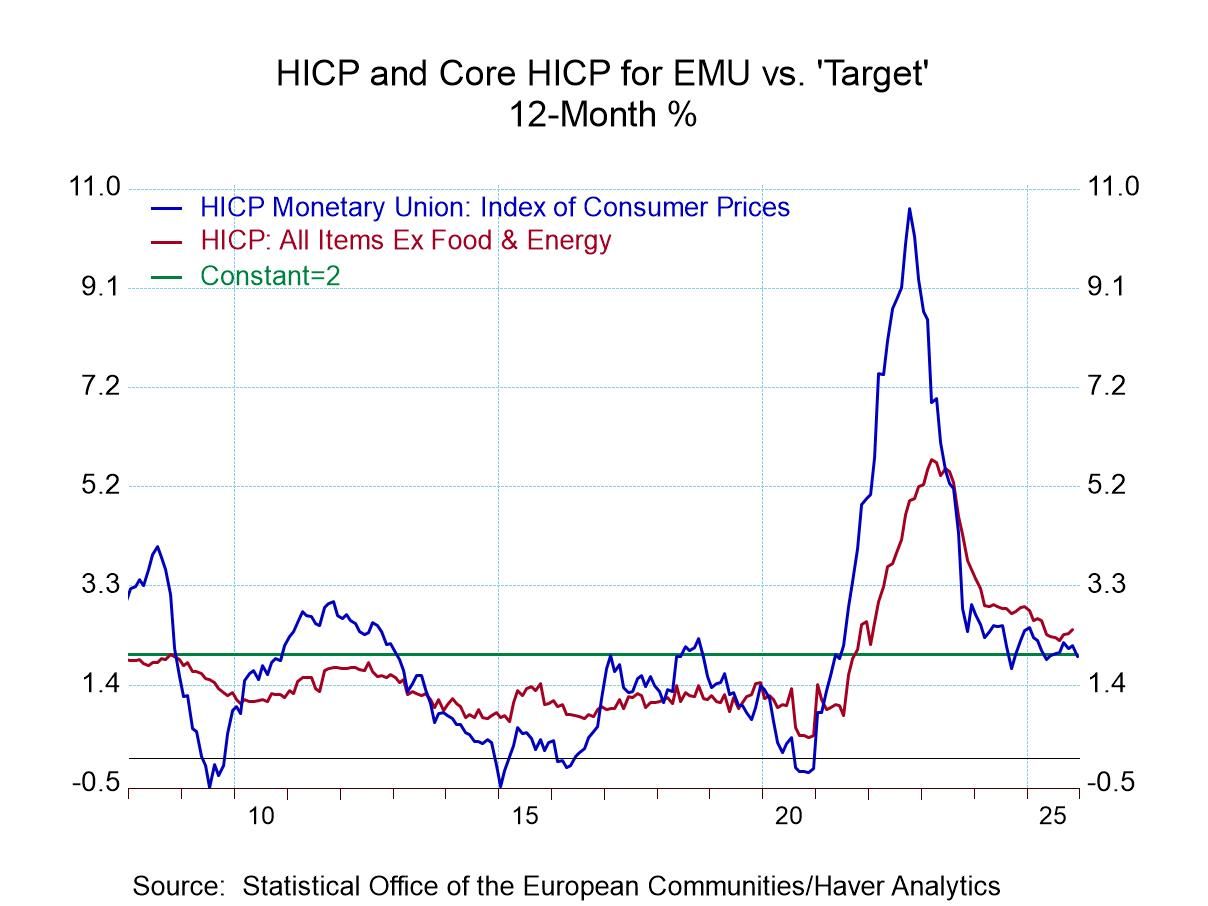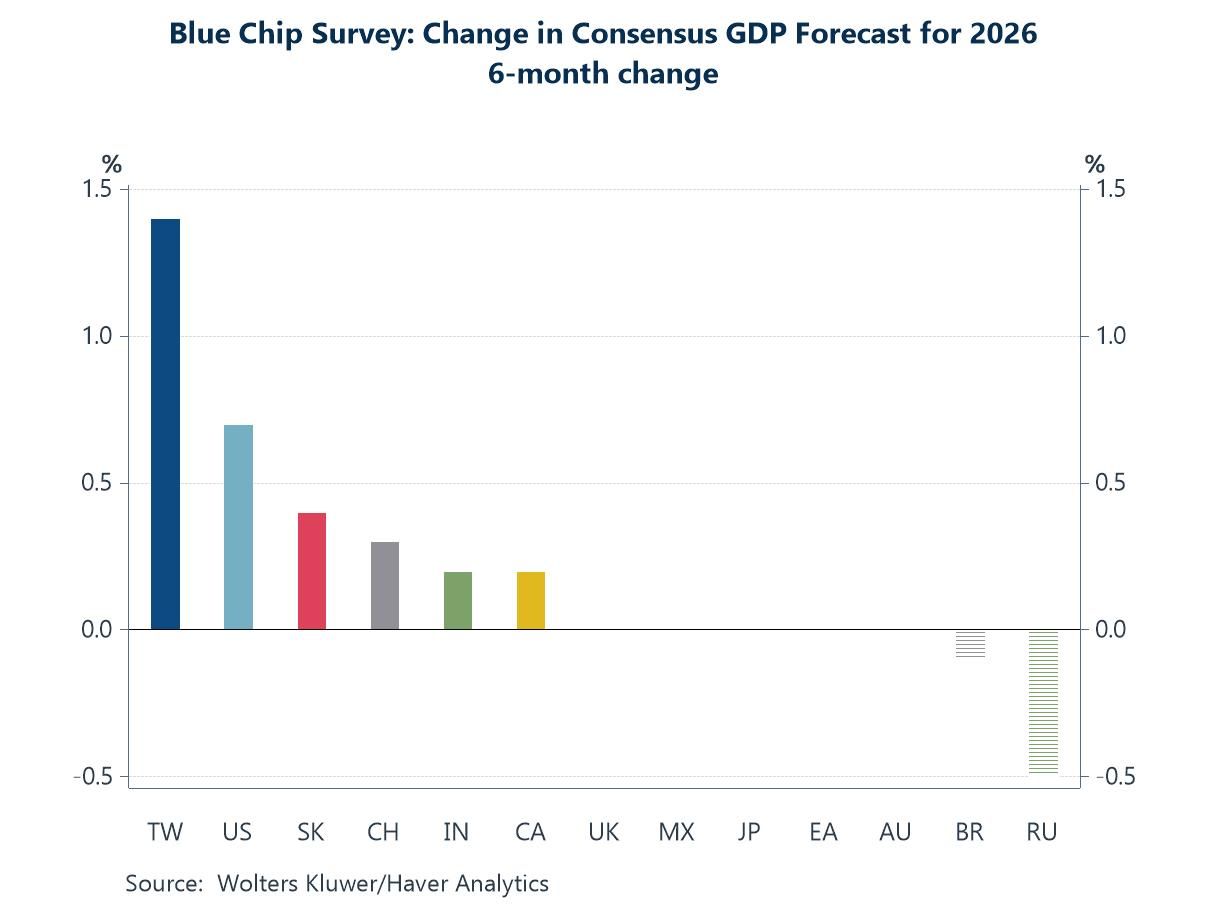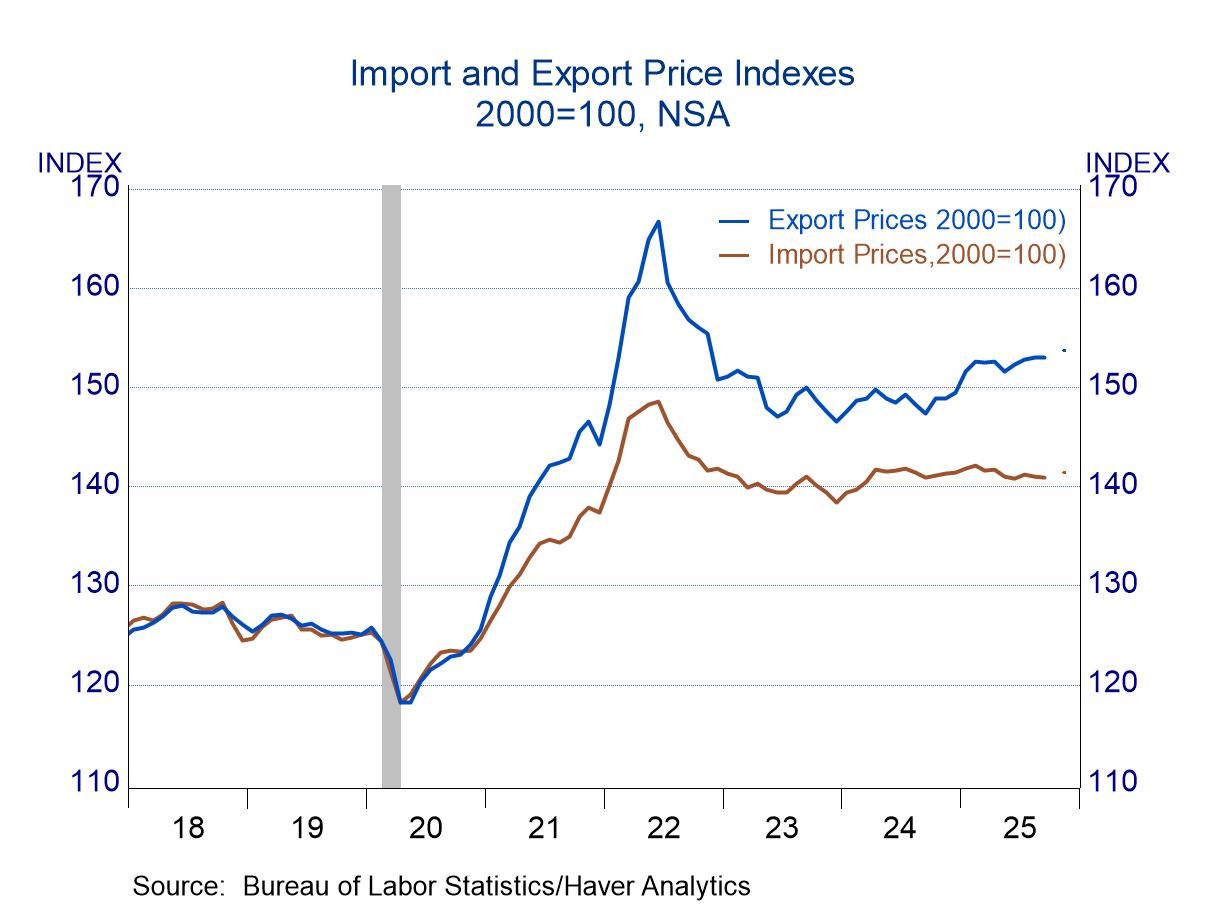 Global| Jun 28 2010
Global| Jun 28 2010Japan Retail Sales Crumble As G-X Sets Debt-Reduction As The Main ObjectiveOr, Is The G-X Whistling Past The Grave Yard?
Summary
Government spending program had been underpinning Japan retail sales until this month when sales fell sharply. The month-to-month drop was the first since December 2009 and the largest since February 2005. It was the smallest Yr/Yr [...]
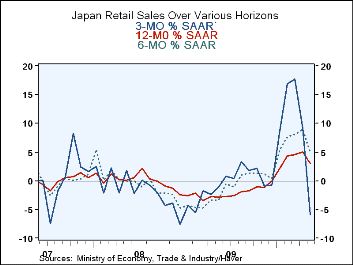 Government spending program had been underpinning Japan retail sales until this month when sales fell sharply. The month-to-month drop was the first since December 2009 and the largest since February 2005. It was the smallest Yr/Yr gain since January of this year.
Government spending program had been underpinning Japan retail sales until this month when sales fell sharply. The month-to-month drop was the first since December 2009 and the largest since February 2005. It was the smallest Yr/Yr gain since January of this year.
The chart tells the story of a fast drop off in sales. Japan's deflation data have been telling a story of weak consumer demand for some time. With the government incentive programs wearing off we can now begin to see that unaided consumer demand is quite weak in Japan.
Angela Merkel may have won the policy row-or at leas the PR part of it-at the G-X Summit. But the US point that demand is fragile and that it is important to keep growth on line remains the most important near term objective-and the G-X gave it minor standing. Going for budget restraint while the economy is not yet healthy is like trying to get an athlete to perform at Olympic standards right after coming out of intensive care. Foolish though it seems the EMU states have been bullied and cowed by markets in the wake of the revelations of budget-cheating by Greece. Markets have caught countries in a moment of weakness Germany, the country that bank-rolls the Emu-backstop has seized that opportunity to back austerity moves on a tight time schedule, perhaps one that is too tight. While the Summit makes it clear the austerity should not interfere with growth it is clear also that the path the European economies already are on an austerity path. They are assuming growth will be fine instead of assuring that that it will be so. It's a risk.
The summit seems to be a cartoon event of the past. The formality of the G-20 communiqué itself combined with the caveat that nothing is binding serves as a reminder that the clothes do not make the man. The problems of the world economy are still there and the G-X was not able to effectively convince us it would solve them. It is taking steps-some more assured than others-but we cannot be sure of the order of theses steps or of their size. Meanwhile, we see the current needs of an economy like Japan where the new PM wants to tackle its long-entrenched debt problem. Good objective. But is it the right time? Timing is everything.
| Japan Retail Sales Trends | ||||||||
|---|---|---|---|---|---|---|---|---|
| May 10 |
Apr 10 |
Mar 10 |
3mo | 6mo | 12mo | Yr-Ago | Q-to- Date |
|
| Total SA | -2.0% | 0.5% | 0.8% | -3.1% | 3.7% | 2.7% | -9.2% | 1.4% |
| Not seasonally adjusted | ||||||||
| Total: Nominal | -1.9% | 0.5% | 0.0% | -5.8% | 4.9% | 3.0% | -10.9% | 0.3% |
| Motor Vehicles | -5.8% | 4.7% | 2.0% | 2.8% | -0.6% | 13.5% | -0.3% | 13.5% |
| Food& Beverage | -1.1% | 0.1% | 0.8% | -0.3% | 3.7% | -0.4% | -0.3% | -2.4% |
| Fabric apparel& access | 0.9% | -4.2% | -0.8% | -15.1% | 4.2% | 2.9% | -3.2% | -15.6% |
| Rest of Retail | -1.8% | 0.3% | -1.0% | -9.6% | 7.2% | 2.8% | -20.1% | 1.5% |
Robert Brusca
AuthorMore in Author Profile »Robert A. Brusca is Chief Economist of Fact and Opinion Economics, a consulting firm he founded in Manhattan. He has been an economist on Wall Street for over 25 years. He has visited central banking and large institutional clients in over 30 countries in his career as an economist. Mr. Brusca was a Divisional Research Chief at the Federal Reserve Bank of NY (Chief of the International Financial markets Division), a Fed Watcher at Irving Trust and Chief Economist at Nikko Securities International. He is widely quoted and appears in various media. Mr. Brusca holds an MA and Ph.D. in economics from Michigan State University and a BA in Economics from the University of Michigan. His research pursues his strong interests in non aligned policy economics as well as international economics. FAO Economics’ research targets investors to assist them in making better investment decisions in stocks, bonds and in a variety of international assets. The company does not manage money and has no conflicts in giving economic advice.



